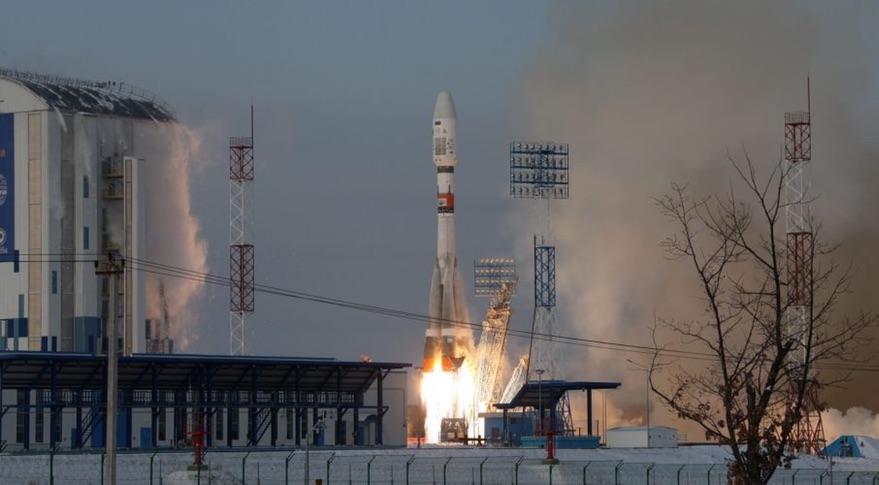Soyuz Satellites Feared Lost in Launch Failure
WASHINGTON — Nineteen satellites launched on a Soyuz rocket Nov. 28 are now widely assumed to be lost, with one of the companies involved in the mission stating that the launch was a failure.
The Soyuz-2.1b rocket lifted off from the Vostochny Cosmodrome in Russia's Far East early Nov. 28. After initial reports of a successful launch, the Russian state space corporation Roscosmos said it could not contact the vehicle's primary payload, the Meteor-M No.2-1 weather satellite, because it was not in its planned orbit.
Neither Roscosmos nor Glavkosmos, the company that arranged the launch of 18 secondary payloads on this mission, have provided further updates. However, Canadian satellite operator Telesat, which had a prototype satellite on the rocket, said later Nov. 28 that the launch had failed.
"Telesat learned this morning that the Soyuz 2 launch vehicle that was to place 19 spacecraft into orbit, including Telesat's first Phase 1 LEO satellite, has failed," the company said in a brief statement.

The satellite was one of two ordered by Telesat to demonstrate its planned low Earth orbit broadband constellation. The satellite lost on the Soyuz was built by the University of Toronto Institute for Aerospace Studies Space Flight Laboratory in partnership with Space Systems Loral.
A second satellite, built by British company Surrey Satellite Technology Ltd., is scheduled to launch on the return-to-flight mission of India's Polar Satellite Launch Vehicle, now expected in late December or early January. This failure, Telesat said, did not impact its long-term constellation plans.
Get the Space.com Newsletter
Breaking space news, the latest updates on rocket launches, skywatching events and more!
"Notwithstanding this failure, Telesat's plans to develop a state-of-the-art, high capacity LEO constellation that will deliver transformative, low latency, fiber-like broadband to commercial and government users worldwide, remain on track," the company said in its statement.
Other customers of the launch have refrained from commenting on the apparent launch failure to date. Nick Allain, spokesman for Spire, which had 10 of its ship-tracking and weather data cubesats on the Soyuz, told SpaceNews Nov. 28 that the company would not comment on the launch until Russian officials "have completed their own investigation."
He added, though, that Spire has a diversified launch strategy, minimizing the effect of this failure. That includes three launches planned in December and a deployment of satellites from the International Space Station next week.
Two other companies with satellites on the Soyuz mission — Astro Digital, with two Earth imaging cubesats, and Astroscale, with an orbital debris measurement small satellite — did not respond to requests for comment Nov. 28 on the status of their spacecraft.
This story was provided by SpaceNews, dedicated to covering all aspects of the space industry.
Join our Space Forums to keep talking space on the latest missions, night sky and more! And if you have a news tip, correction or comment, let us know at: community@space.com.

Jeff Foust is a Senior Staff Writer at SpaceNews, a space industry news magazine and website, where he writes about space policy, commercial spaceflight and other aerospace industry topics. Jeff has a Ph.D. in planetary sciences from the Massachusetts Institute of Technology and earned a bachelor's degree in geophysics and planetary science from the California Institute of Technology. You can see Jeff's latest projects by following him on Twitter.










